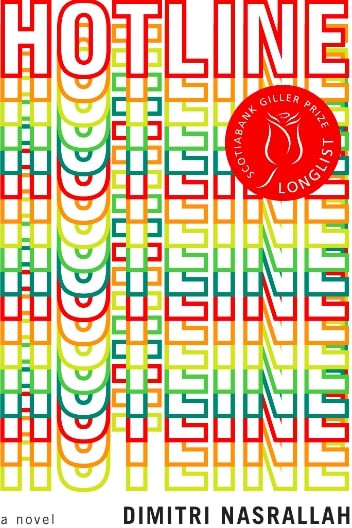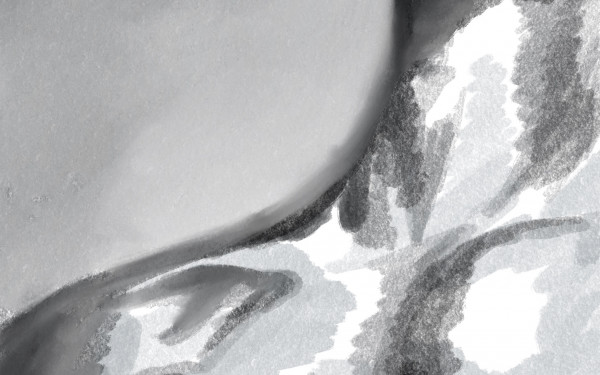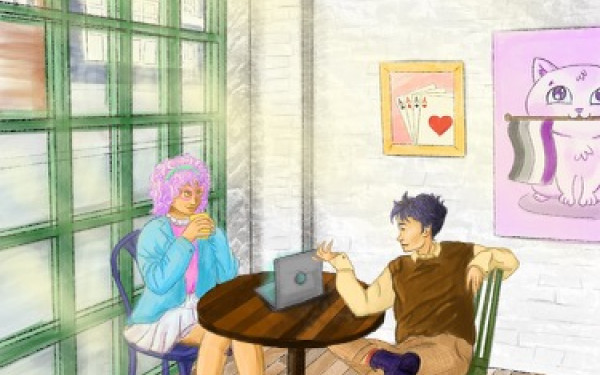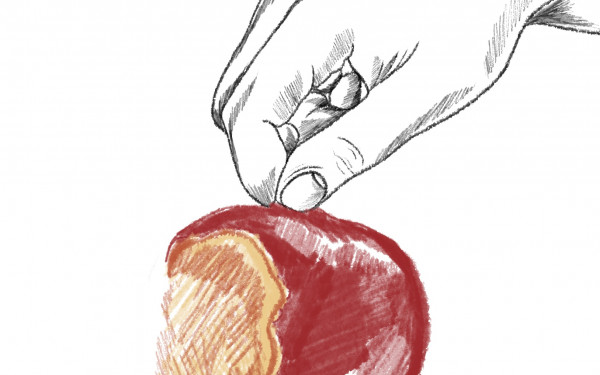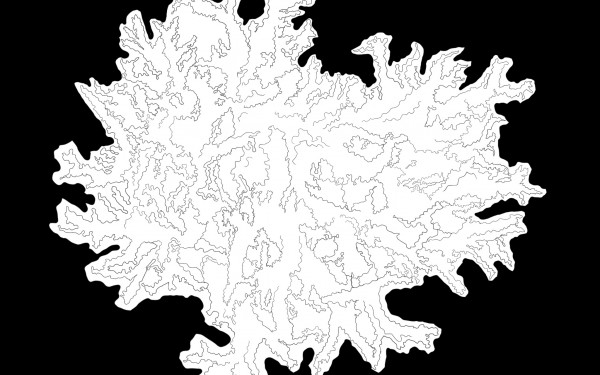Review: Dimitri Nasrallah Blurs Biography in Hotline
Novel Traces Woman’s Journey from Lebanon to Montreal and All the Emotions in Between
Dimitiri Nasrallah’s book Hotline follows the story of Muna Hedddad, a Lebanese woman whose husband was kidnapped during the civil war, leaving her and her son Omar to fend for themselves.
With her in-laws trying to push her out of the family, she decides to move to Montreal in the 1980s. Despite Muna having been a French teacher in Lebanon, no schools will hire her. This leads her to take a job as a phone operator for a weight loss hotline.
Nasrallah, a Lebanese-Canadian writer and author of four novels, often deals with themes relating to immigrants and those who have suffered loss. Born in Lebanon during the early stages of the Civil War, his family took refuge in Greece before coming to Montreal in 1988. A depth of feeling is leant to his writing by decades of memories that weave throughout this partly autobiographical story. In the acknowledgements, Nasrallah mentions that Muna is largely based on his own mother when she arrived in Montreal. Consequently, writing Hotline helped him better understand that part of her life.
The author’s exemplary writing in his latest novel Hotline is easy to digest and keeps the reader captivated throughout the entire book. Although the novel is written in english, Nasrallah includes a word or two at the end of various sentences from Muna’s mother tongue allowing the reader to appreciate and admire the unique traits Muna carries with her throughout the transitions in her life. On top of his incredible writing skills, Nasrallah has shown the ability to create dominant characters. While Muna is a single mother freshly immigrated from Lebanon, readers can’t help but feel a strong connection with her after having watched the strength she’s demonstrated time and time again throughout the book.
I tend to lean towards fiction set in the present since I find these characters to be more compatible with myself. Hotline by Dimitri Nasrallah is the exception. Through Muna’s experiences, the novel depicts the economic difficulties that can arise from immigration. I may not have much in common with this character, yet her strength and devotion to her son kept me captivated page after page.
The author jumps from different periods in Muna’s life, from the beginning of her marriage to her time in Montreal. This may cause confusion for some readers, but I thought it was an effective way to better understand her past and where her courage stems from.
Halim, Muna’s husband, is the character around which Muna’s story revolves. Halim appears not only through flashbacks to Muna’s past, but as a spirit that reappears time and time again to give her guidance during hardships. The themes of loss and grief are crucial to the story. Between losing her husband, being abandoned by her family and having to leave her home, Muna is engulfed by loss. Not only does she feel her grief emotionally, but when Halim visits her, grief takes a physical toll on her body. When her late husband manifests himself, she physically feels his presence, sensing him touch her shoulder in the shower and in other comforting ways.
Also present are recurring themes of motherhood. Muna’s number one goal has been to provide a better life for her son, Omar, and to finally have him forget his past. In spite of wanting to spend more time with Omar, Muna must work most days, leaving him to take care of himself. While this causes a certain amount of resentment from her son, Muna knows that he will understand the circumstances better when he gets older. This appears to be a subtle reference to the author’s better understanding of that part of his own mother’s life. As Muna and his mother have a lot in common, the author and Omar clearly have some childhood similarities, which lead them to later appreciate their mother’s sacrifices.
As the story progresses, Muna’s life unravels on the page and eventually reaches a point where she is finally able to breathe. The ending allows readers to see how her life unfolded despite her rocky beginning in Montreal and after a year in the city, Hotline acts as a gateway to greater understanding and respect for the life of an immigrant.

